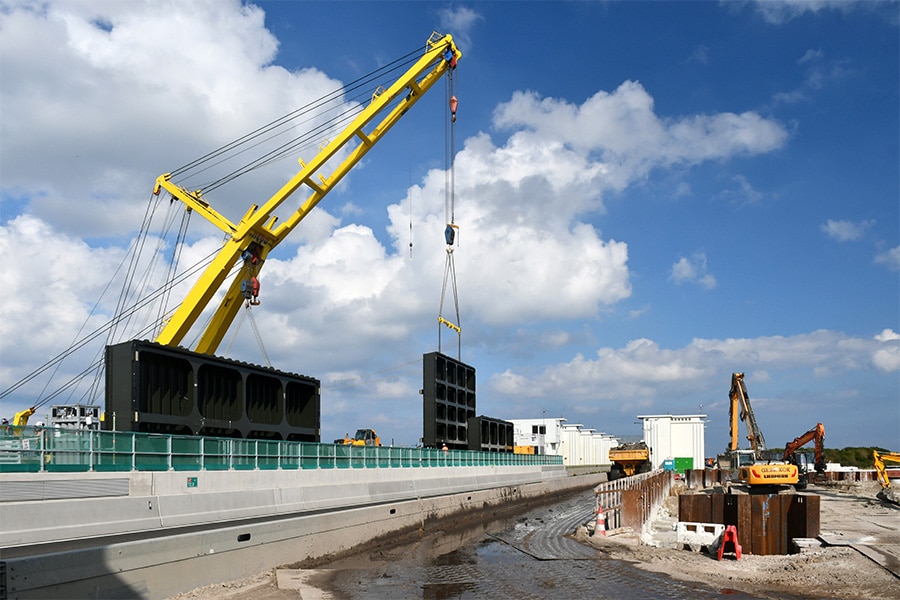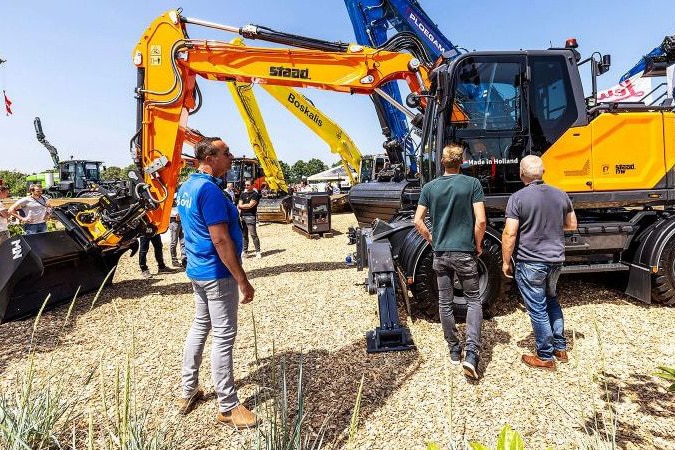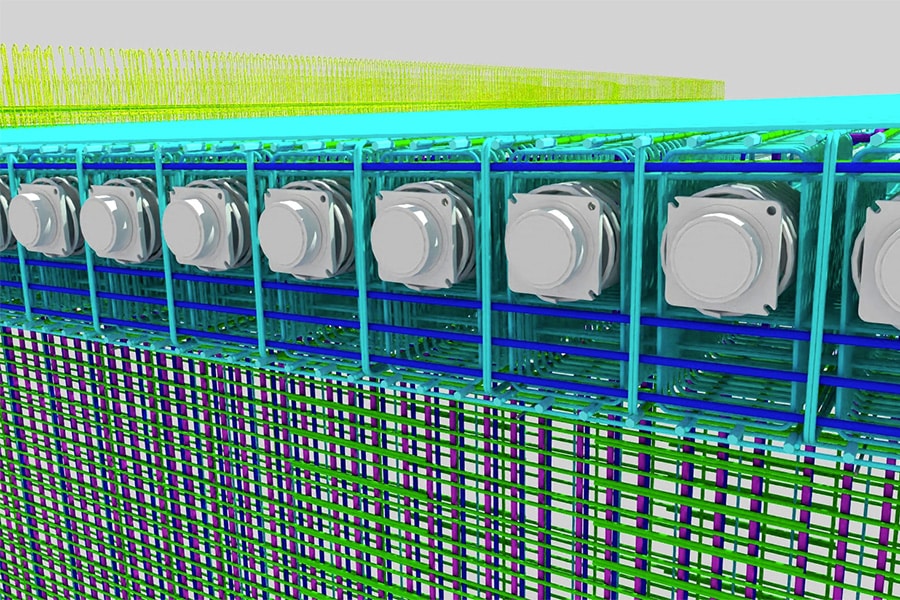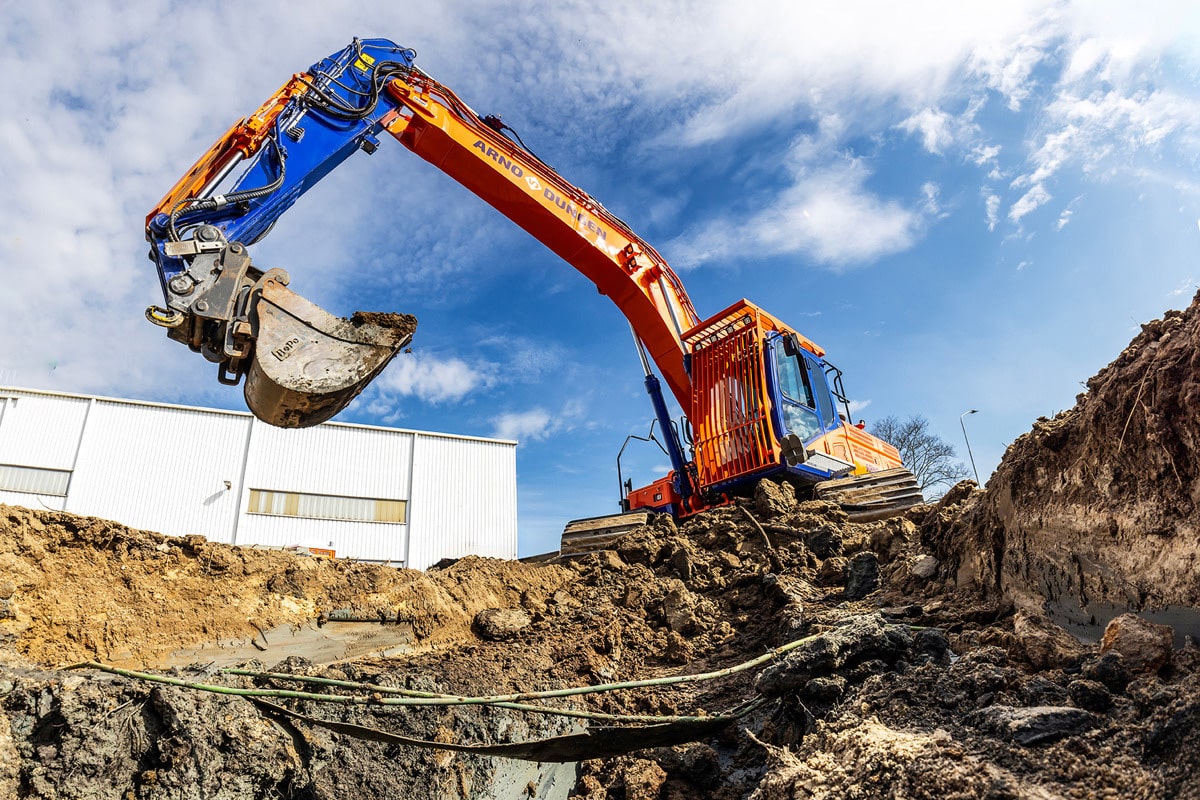
Jan De Nul announces ambitious CO₂ reduction targets
Jan De Nul Group commits to emitting 15% less CO₂ annually during maintenance dredging at the Nieuwpoort coastal marina. It is the first dredging company in the world to aspire to such a percentage in commercial application on a project. The company also plans to work with the Flemish government by 2022 to require a minimum 15% CO₂ reduction in 80% of maintenance dredging contracts in Flanders.
In the tender for the maintenance dredging works in the coastal yacht harbor of Nieuwpoort, the Flemish government, Agency for Maritime Services and the Coast, gave the market maximum opportunities to focus on CO₂ reduction through innovation. Jan De Nul Group won the contract with the commitment to emit 15% less CO₂ annually. This is unprecedented within the industry. Never before has a dredger in commercial application on a project aspired to reduced CO₂ emissions of this magnitude.
Drop-in biofuel
Among other things, Jan De Nul Group is betting on drop-in biofuel to meet its ambitious CO₂ reduction target. This is a high-quality fuel, a sustainable replacement for fossil diesel, made from vegetable oils or waste streams. "Drop-in" means that engines do not have to be modified to use it. Moreover, not only does it reduce CO₂ emissions, it also releases significantly less particulate matter into the air. Combustion is much more efficient than conventional diesel. Because drop-in biofuel uses waste streams as raw material, it also promotes the circular economy. Finally, because it is a very clean fuel, it is extremely suitable for high-performance engines
The Agency for Maritime Services and Coast (MDK) within the Department of Mobility and Public Works, shows with this approach and the choice of Jan De Nul how it is a pioneer within the Flemish government to meet the reduction targets for Belgium. Under the Paris Climate Agreement, our country has committed to emitting 15% less CO₂ compared to 2005 by 2020.
Nathalie Balcaen, administrator general of the MDK agency: "As a maritime government partner within the Flemish government, we want to make every effort to reduce our ecological footprint. In the specifications we put on the market, we therefore pay particular attention to green criteria. This is already leading to concrete CO₂ reductions today, including by paying attention to the environmentally friendly execution of the dredging works and the contractors we work with."
"The MDK agency not only pays attention to climate requirements when drawing up procurement contracts," said Nathalie Balcaen. "We also take responsibility within our own operations. We are also greening our own vessels to reduce our own carbon emissions. For example, we are building an electric spring."
Sector-wide CO₂ reduction.
But for Jan De Nul, the project also fits within its ambition to play a pioneering role and roll out a sector-wide CO₂ emissions reduction program. By 2022, the dredger wants to have an obligation for a minimum 15% CO₂ reduction included in 80% of maintenance dredging contracts in Flanders. "We want to make maximum efforts and thereby inspire other companies within our sector to engage in promising energy or CO₂ reduction measures," says Bart Praet, Head of Department Dredging Benelux at Jan De Nul Group. "We are therefore happy to engage in dialogue with the Flemish government and the Flemish Water Builders Association, and to work closely with Zero Emission Solutions and the advanced renewable fuels industry."
The announcement of the targets comes just after the Flemish government's decision to agree to a three-year pilot project testing the CO₂ performance ladder for public procurement. That ladder was developed in 2009 in the Netherlands as a tool and certification scheme to encourage CO₂ reduction, and proved a great success there. The Flemish pilot project will start in September 2019 and last until September 2022. The result should be that contractors will be awarded contracts if they offer maximum quality, minimum CO₂ emissions and a fair price.
"We are convinced that Jan De Nul can play an absolute pioneering role here," said another Bart Praet. "We want to be one of the first contractors to make a significant contribution to the Flemish pilot project and be one of the first to achieve actual CO₂ reductions on a project."
Bart Praet: "Our project in Nieuwpoort is a concrete example with which we want to initiate a dialogue around reduction requirements. We want to encourage our peers in the industry to use innovation to quickly and forcefully come out of the corner with concrete promising energy and CO₂ reduction measures."



